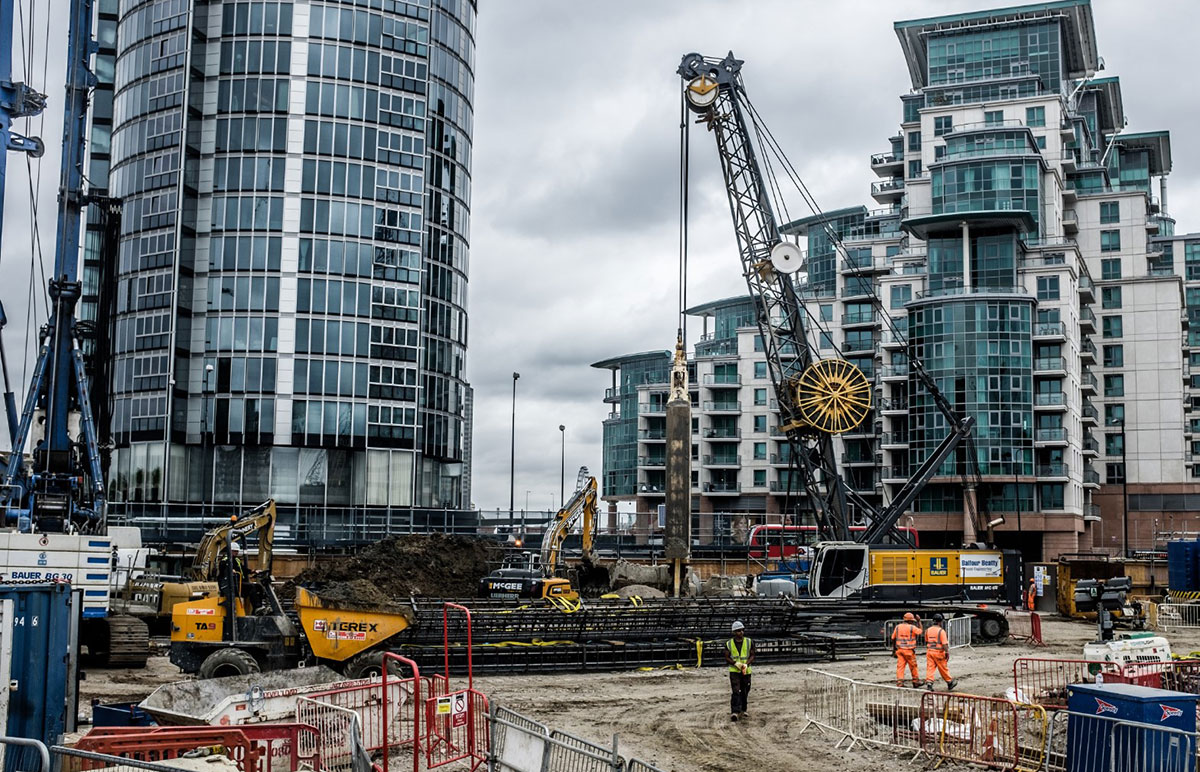Getting My Geotheta To Work
Table of ContentsThe Main Principles Of Geotheta The Ultimate Guide To GeothetaGeotheta - Truths10 Easy Facts About Geotheta ExplainedTop Guidelines Of Geotheta

They conduct site investigations, accumulate examples, execute research laboratory examinations, and assess data to evaluate the suitability of the ground for construction projects - Consulting Engineer. Based on their findings, geotechnical designers provide recommendations for foundation design, slope security, preserving frameworks, and mitigation of geotechnical threats. They team up with various other experts, such as designers, structural designers, and building and construction teams, to make certain that geotechnical considerations are incorporated into the overall project layout and application
By evaluating the habits and residential properties of dirt and rock, they can determine prospective geotechnical dangers such as landslides, dirt negotiation, or slope instability. Their competence helps protect against failings or crashes that might jeopardize lives and home. Below are some comprehensive duties and duties of a geotechnical designer: Website Investigation: Geotechnical engineers conduct website investigations to collect data on subsurface problems.
They translate the data to recognize the homes and actions of the soil and rock, including their stamina, permeability, compaction characteristics, and groundwater problems. Geotechnical Analysis and Layout: Geotechnical engineers analyze the data accumulated throughout website examinations to assess the stability and suitability of the website for building jobs. They execute geotechnical calculations and modeling to assess elements such as bearing capacity, negotiation, slope security, side planet stress, and groundwater flow.
The Main Principles Of Geotheta
Structure Design: Geotechnical designers play an essential duty in designing foundations that can securely support the desired structure. They analyze the dirt conditions and tons demands to figure out the appropriate structure type, such as shallow structures (e.g., grounds), deep structures (e.g (https://www.find-us-here.com/businesses/Geotheta-Alexandria-Alabama-USA/34113488/)., heaps), or specialized techniques like soil improvement. They take into consideration factors such as negotiation limits, birthing capability, and soil-structure communication to create ideal structure layouts
They examine construction plans, screen site activities, and conduct field inspections to confirm that the style recommendations are complied with. If unanticipated geotechnical problems occur, they evaluate the circumstance and provide recommendations for removal or adjustments to the style. Danger Analysis and Reduction: Geotechnical engineers examine geotechnical threats and threats related to the project site, such as landslides, liquefaction, or soil erosion.

Partnership and Communication: Geotechnical engineers function carefully with various other specialists associated with a job, such as engineers, architectural engineers, and construction groups. Reliable communication and cooperation are vital to integrate geotechnical factors to consider into the overall project design and building and construction process. Geotechnical designers give technical know-how, answer queries, and ensure that geotechnical demands are met.
A Biased View of Geotheta
Here are some kinds of geotechnical engineers: Structure Designer: Foundation engineers concentrate on developing and evaluating structures for frameworks. They evaluate the dirt conditions, tons needs, and website characteristics to identify one of the most ideal structure type and design, such as shallow structures, deep structures, or specialized techniques like pile foundations.
They assess the aspects affecting incline security, such as dirt buildings, groundwater problems, and incline geometry, and develop methods to protect against incline failures and alleviate threats. Quake Designer: Quake engineers specialize in analyzing and developing structures to hold up against seismic forces. They home assess the seismic danger of a website, assess dirt liquefaction capacity, and develop seismic layout criteria to make sure the safety and security and resilience of structures throughout quakes.
They execute field testing, collect examples, and assess the accumulated data to define the soil residential or commercial properties, geologic formations, and groundwater problems at a website. Geotechnical Instrumentation Designer: Geotechnical instrumentation engineers concentrate on monitoring and gauging the behavior of soil, rock, and frameworks. They set up and maintain instrumentation systems that monitor variables such as dirt settlement, groundwater degrees, slope motions, and structural variations to examine efficiency and offer early cautions of prospective issues.
The Buzz on Geotheta
They conduct examinations such as triaxial examinations, combination examinations, direct shear examinations, and leaks in the structure tests to gather information for geotechnical analysis and style. Geosynthetics Designer: Geosynthetics engineers concentrate on the design and application of geosynthetic products, such as geotextiles, geogrids, and geomembranes. They utilize these materials to improve dirt security, strengthen inclines, supply water drainage services, and control disintegration.
They tend to be investigatory people, which means they're intellectual, introspective, and investigative. They are interested, systematic, logical, analytical, and sensible. Some of them are additionally social, suggesting they're kind, generous, participating, patient, caring, handy, understanding, sensible, and pleasant - Geo Tech Engineer.
In the workplace setting, geotechnical engineers use specialized software program devices to execute calculations, produce styles, and examine information. They prepare reports, evaluation project specifications, interact with clients and staff member, and coordinate job tasks. The office setup supplies a favorable environment for study, evaluation, and partnership with other professionals entailed in the job.
Excitement About Geotheta
They regularly visit job sites to carry out site investigations, assess geotechnical problems, and gather data for evaluation. These sees involve taking a trip to various places, occasionally in remote or difficult terrains. Geotechnical engineers may carry out dirt sampling, conduct examinations, and monitor building and construction activities to make certain that the geotechnical aspects of the job are being executed appropriately.
Geotechnical engineers also function in specialized geotechnical laboratories. Geotechnical laboratory designers work extensively in these settings, handling testing devices, running tools, and tape-recording information.